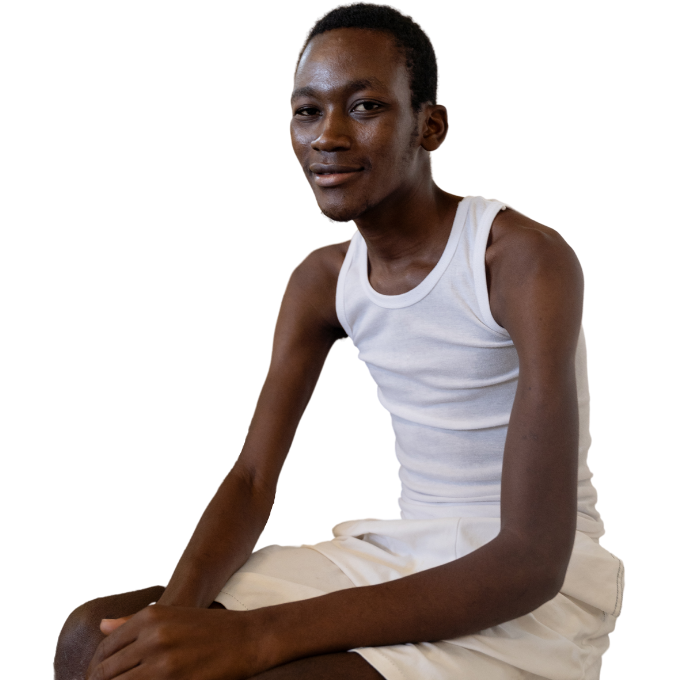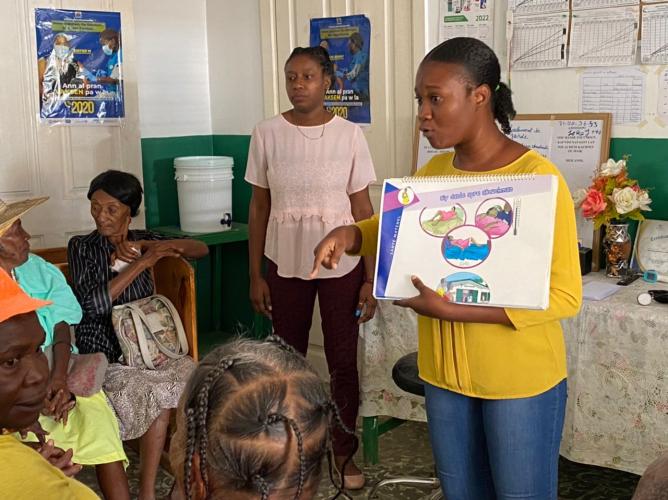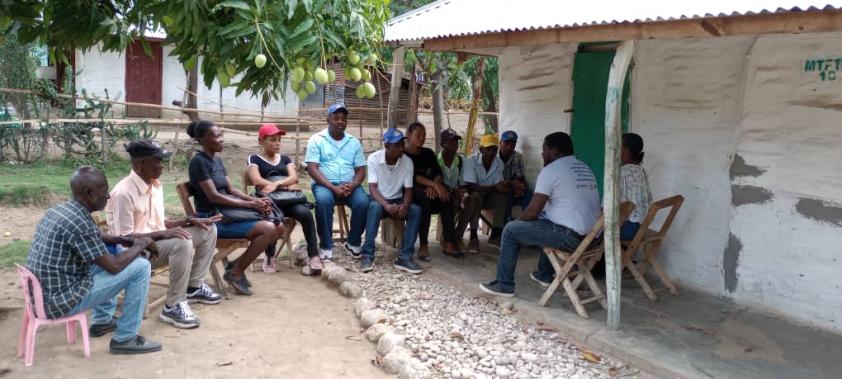“This is the first hospital I’ve been to that has welcomed me like this.”
Your support will help patients like Enoc access dignified care for tuberculosis and other infectious diseases.


Traditional birth attendants (midwives) review danger signs in pregnancy.
HEI/SBH is proud to be leading a five-year project funded by the U.S. Agency for International Development (USAID) to improve access to high-quality health care in southern Haiti. The Partnership for Equity in Health project, known as Kore Sante (“Supporting Health”) locally, supports Haiti’s Ministry of Health and a half-dozen nonprofit organizations in providing high-quality primary care services in the geographic departments of Grande Anse, Nippes, Sud, and Sud-Est. Through this work, we hope to further our mission of ensuring that all people, regardless of their ability to pay, have access to high-quality, compassionate health care.
We are working with the Ministry of Health and nonprofit partners to serve:

31 health facilities and surrounding communities

800,000 direct beneficiaries
2,000,000 indirect beneficiaries
HEI/SBH is the first Haitian-led organization to lead this type of effort, and our approach is to put people first—staff as well as patients. “We’re trying to rally people around an idea and a goal, inspiring them to put in the effort needed at each of their local health facilities so we can all reach that goal together,” explains Ikpindi Djeri, Chief Program Officer.
Our team is providing training, coaching, and supportive supervision to improve the quality of both community-based and clinic-based health services. The project is also focusing on improving data collection and management to ensure all teams have the most reliable and up-to-date information needed to inform decision-making and improve outcomes for patients.

Kore Sante’s Water, Sanitation, and Hygiene (WASH) team meets with community health workers in Les Anglais.
SBH has decades of experience working in partnership with the communities we serve to foster open communication, mutual accountability, transparency, and trust. We firmly believe in building strong hospital-community relationships and hope to extend these values across the region through this project. To accomplish this, we are helping our partner facilities and their local communities establish health facility advisory groups, starting in the Grande Anse and Sud departments. Each group consists of community leaders, past patients, healthcare professionals, and a Ministry of Health representative. These groups serve as a platform to identify and create strategies to address the needs of each community. In doing so, the groups are contributing to epidemic control, public health messaging, and health education. Finally, to help ensure that women’s needs are addressed, women comprise approximately half of each group.
Transformational work is not easy even in the best of times, and these are not the best of times. Haiti’s humanitarian crisis grinds on, limiting the ability of partners to attend coordinating meetings and affecting the availability of essential supplies like fuel and vaccines. Internet connectivity issues have also impacted electronic data reporting.
“Health systems strengthening is a long, arduous process,” says Dr. Wilfrid Cadet, our Chief Medical Advisor. “It’s not like treating a child with pneumonia, where you give them antibiotics and two or three days later they are home, playing.” But, he adds, “We have the will and the strategies to pass on our model of healthcare delivery based on equity and empathy.”
“We have the will and the strategies to pass on our model of healthcare delivery based on equity and empathy.”
Dr. Wilfrid Cadet
Despite the many ways the country’s humanitarian crisis impacts its health system, HEI/SBH and the Kore Sante team are committed to serving the people of southern Haiti and improving health outcomes in the region. Our teams are continually assessing data, identifying obstacles, and collaborating with partners to overcome the challenges. We are proud of the impact our joint efforts are already having on the people we serve and are confident that our ongoing work will help save more lives and create stronger, more resilient communities in southern Haiti.
Your support will help patients like Enoc access dignified care for tuberculosis and other infectious diseases.
